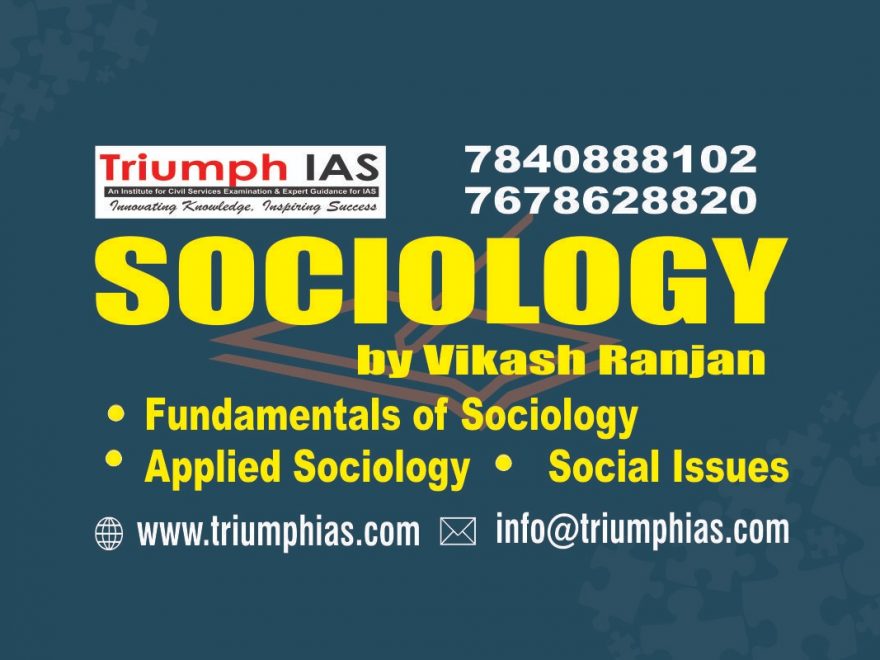Relevance: Sociology paper I: System of kinship: marriage and family
Marriage and family are key structures in most societies. While the two institutions have historically been closely linked in U.S. culture, their connection is becoming more complex. The relationship between marriage and family is an interesting topic of study to sociologists.
It has been generally assumed that the institution of marriage is a universal feature in human societies. Although many sociologists and anthropologists have attempted to provide definitions of marriage, none of them has been satisfactorily and sufficiently general enough to encompass all its various manifestations. This is because marriage is a unique institution of human society that has different implications in different cultures. It is a biological fact that marriage is intimately linked to parenthood. This has led to many anthropologists like Malinowski and Radcliffe-Brown to propose definitions of marriage centring on the Principle of Legitimacy.
According to Malinowski, a legal marriage is one which gives a woman a socially recognized husband and her children a socially recognized father.
Radcliffe-Brown states that Marriage is a social arrangement by which a child is given a legitimate position in the society determined by parenthood in the social sense.
According to Westermarck it is a relation of one or more men to one or more women which is recognized by custom or law and involves certain rights and duties both in the case of parties entering the union and in the case of children born out of this union.
According to Lundberg, marriage consists of rules and regulations that define the rights, duties and privileges of husband and wife with respect to each other.
According to Horton and Hunt marriage is the approved social pattern whereby two or more persons establish a family.
According to John Levy and Ruth Monroe people get married because of the feeling that being in a family is the only proper indeed the only possible way to live. People do not marry because it is their social duty to perpetuate the institution of family or because the scriptures recommend matrimony but because they lived in a family as children and cannot get over the feeling that being in a family is the only proper way to live in society.
Different Types of Marriages
In the Western world, monogamous, heterosexual marriage is the most common form and is considered the norm. However homosexual marriage is increasingly common and in many places, including the U.S., has been sanctioned by law and by many religious groups. This change in practice, law, and cultural norms and expectations for what a marriage is and how can participate in it reflects the fact that marriage itself is a social construct. As such, the rules of marriage, the division of labour within a marriage, and what constitutes the roles of husbands, wives, and spouses generally are subject to change and are most often negotiated by the partners within the marriage, rather than firmly dictated by tradition.
Other forms of marriage that occur around the world include polygamy (a marriage of more than two spouses), polyandry (a marriage of a wife with more than one husband), and polygyny (the marriage of a husband with more than one wife). (Note that in common usage, polygamy is often misused to refer to polygyny.)
Sociologists are interested in the relationship between the institution of marriage and the institution of family because, historically, marriages are what create a family, and families are the most basic social unit upon which society is built. Both marriage and family create status roles that are sanctioned by society.
So, what is a family? A husband, a wife, and two children—maybe even a pet—has served as the model for the traditional U.S. family for most of the twentieth century. But what about families that deviate from this model, such as a single-parent household or a homosexual couple without children? Should they be considered families as well?
The question of what constitutes a family is a prime area of debate in family sociology, as well as in politics and religion. Social conservatives tend to define the family in terms of structure with each family member filling a certain role (like father, mother, or child). Sociologists, on the other hand, tend to define family more in terms of the manner in which members relate to one another than on a strict configuration of status roles. Here, we’ll define family as a socially recognized group (usually joined by blood, marriage, cohabitation, or adoption) that forms an emotional connection and serves as an economic unit of society. Sociologists identify different types of families based on how one enters into them. A family of orientation refers to the family into which a person is born. A family of procreation describes one that is formed through marriage. These distinctions have cultural significance related to issues of lineage.
Drawing on two sociological paradigms, the sociological understanding of what constitutes a family can be explained by symbolic interactionism as well as functionalism. These two theories indicate that families are groups in which participants view themselves as family members and act accordingly. In other words, families are groups in which people come together to form a strong primary group connection and maintain emotional ties to one another over a long period of time. Such families may include groups of close friends or teammates. In addition, the functionalist perspective views families as groups that perform vital roles for society—both internally (for the family itself) and externally (for society as a whole). Families provide for one another’s physical, emotional, and social well-being. Parents care for and socialize children. Later in life, adult children often care for elderly parents. While interactionism helps us understand the subjective experience of belonging to a “family,” functionalism illuminates the many purposes of families and their roles in the maintenance of a balanced society (Parsons and Bales 1956).

